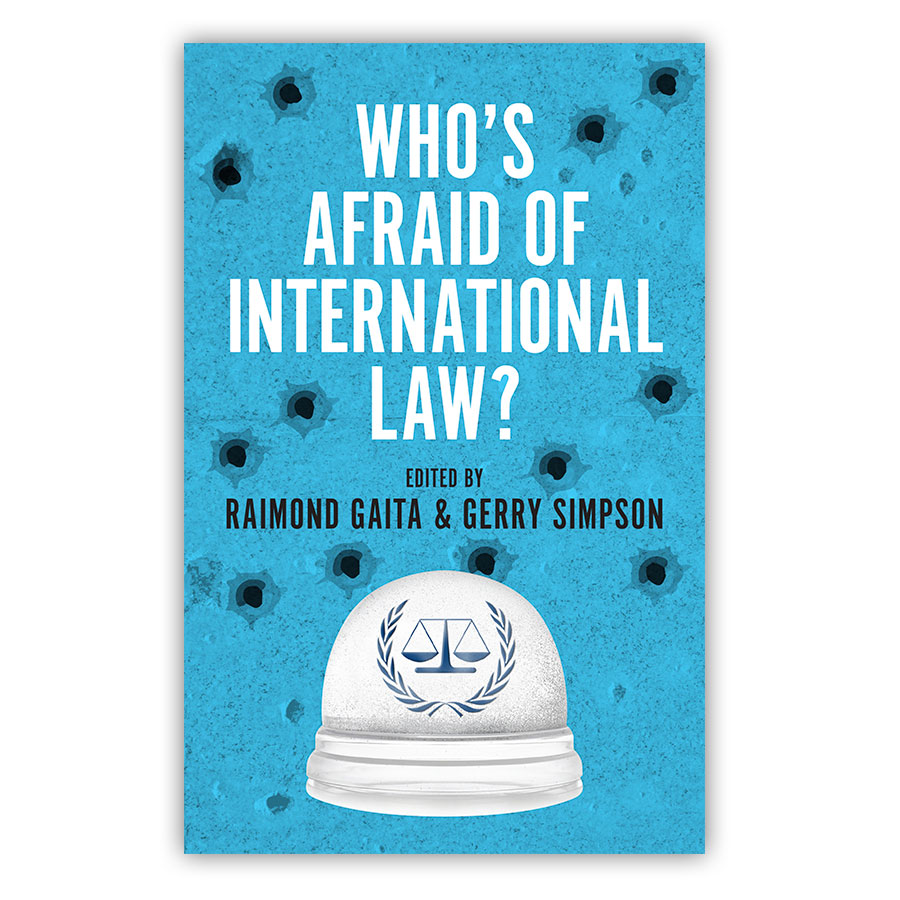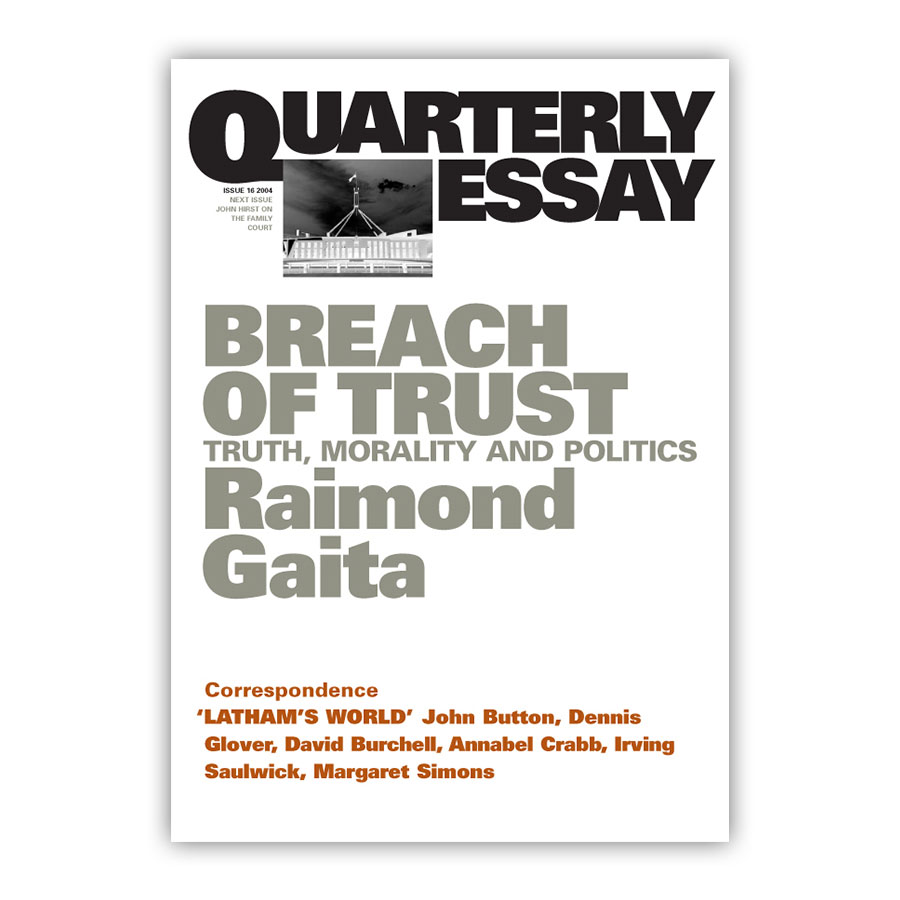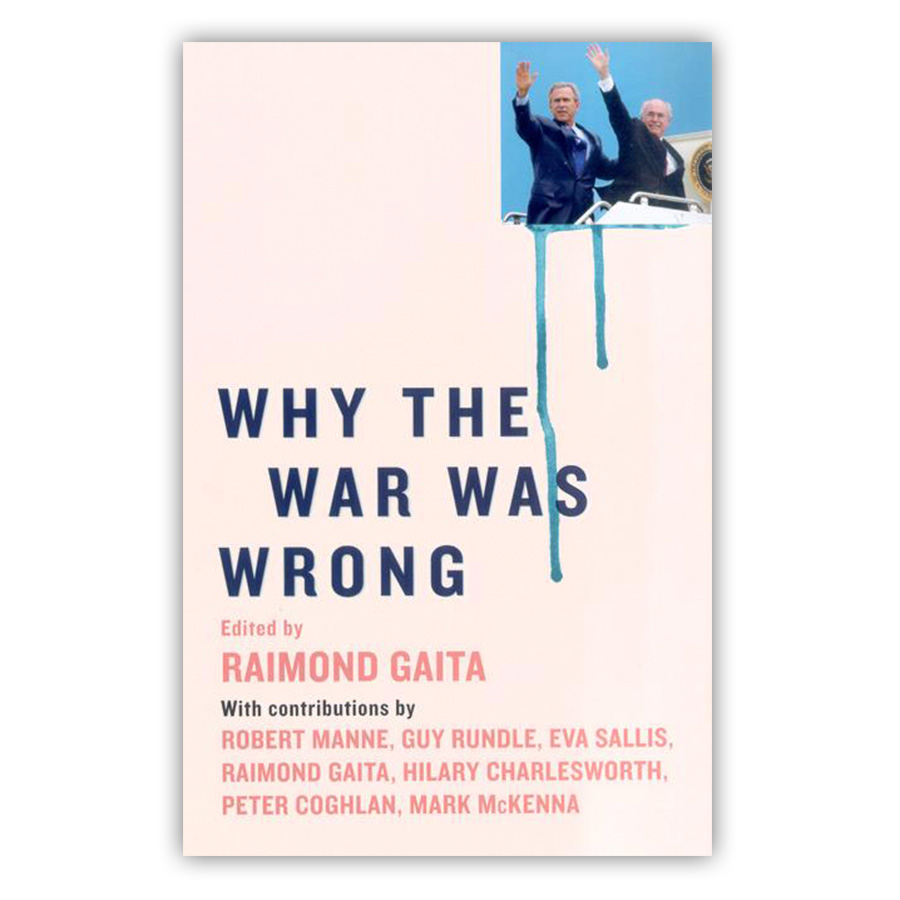
In Gaza: Morality, Law and Politics, leading academics and intellectuals: Mark Baker, Anthony Billingsley, Hilary Charlesworth, Gerry Simpson, Ghassan Hage, Geoffrey Levey and Raimond Gaita provide a fresh analysis on what is arguably the most critical conflict of our contemporary political world.
This thought-provoking collection of essays explores nationalism, intractability, the point of no return and jurisdiction over war crimes. Raimond Gaita writes, ‘Although all the contributors to this book are to varying degrees critical of Israel’s and Hamas’ conduct before and during the war, that criticism is incidental to the main purpose of the book, which is to clarify an aspect of the conflict that underlies disputing accounts of it and its history – the complex relations between morality, law and politics’ (University of Western Australia Press)
Philosopher Raimond Gaita saw in the Gaza invasion an opportunity to explore both short and long-term issues. With two lawyers (Gerry Simpson and Hilary Charlesworth), a specialist in Jewish studies (Mark Baker), a political theorist (Geoffrey Levey) and an anthropologist (Ghassan Hage), he produced a lecture series that, with a review of the Goldstone report by Anthony Billingsley, make up this book.
The contributors do not represent interests. Gaita relied on their seriousness, thoughtfulness and dedication to truth to outweigh the objection that there were no Israeli or Palestinian speakers. The reader is spared the adversarial harangues that sterilise discussion. Three of the essayists have Israeli or Jewish connections, one has Arab connections and three have neither. Their varying personal and professional perspectives yield rich insights and a high degree of consensus.
Hage prescribes thinking relationally instead of narcissistically. Charlesworth challenges gendered ways of thinking. Levey invokes Catastrophe Theory: when things get bad enough — the catastrophe point — moral principles reverse their message. Baker sees the need for a prophetic leap that will rewrite the script. Gaita is more specific. He calls on Israel to cease treating the occupation as a bargaining chip, set a date for dismantling settlements, and fully acknowledge the wrongs done to Palestinians. He writes:
“Only if Israel does this will it be clear it finally recognises the Palestinian people’s need of a sovereign state in which they can develop the cultural and political institutions that will enable them to flourish as a people. Only then will Israel’s demand that Hamas renounce its charter and recognise the legitimacy of a Jewish state have the moral authority it deserves but presently lacks.” . . . Israel would enjoy more regard in Palestine, and in the world generally, if it displayed the human sympathy and understanding voiced not only by Gaita but by great Israelis such as writers A.B. Yehoshua, Amos Oz, David Grossman and Meir Margalit, traits shared by many of its citizens.
It is a brave person, and Gaita is a very brave person, who would organise a series of public lectures on the conflict by noted philosophers and intellectuals. The lectures were held at the Australian Catholic University in Melbourne. This collection of eight essays, two by Gaita and one each by six other experts on the subjects of law, morality and Middle Eastern politics attempts to discuss the Gaza conflict with logic and objectivity. It attempts to reach beyond the name-calling and acknowledge that, as Gaita astutely observes, “It is, indeed, a cliché of commentary on the conflict between Israel and the Palestinians that it is intractable partly because incommensurable narratives sustain it.”
Rarely has so much cool logic and deep thought, well laced with clear thinking and objectivity, been applied to a bewildering array of subtle and vexing issues. The result is a book that deserves to be read, slowly and carefully, by anyone who ever spouted off about the Israelis and Palestinians. Isn’t that all of us?
Contributors
Ghassan Hage, Raimond Gaita, Mark Baker, Gerry Simpson, Anthony Billingsley, Geoffrey, Brahm-Levey, Hillary Charlesworth




